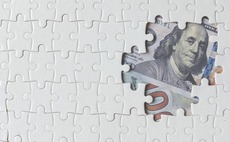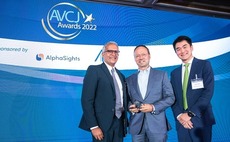
Portfolio: Advantage Partners and Riraku
By undercutting its competition, massage salon Riraku was able access a broader segment of the domestic market. But achieving growth on a national scale required support from Advantage Partners
Japanese employees are notoriously hard working. According to data compiled by the government, around 22% of the country's workforce admits to putting in more than 49 hours a week. This compares to just 16% in US and 11% in Germany.
Overtime at the office is therefore not only common in Japan, but in many cases expected - by clocking off on time a worker runs the risk of being seen lazy, or even disloyal. Holidays don't come easy either. In 2013, the Labor Ministry reported that on average workers only took nine of the 18.5 days off to which they are entitled. It is little wonder that Japanese have a word for death from overwork: karoushi.
Inevitably, industries that provide stress-relief to the overworked masses have seen steady growth. This is particularly true of the quick massage and reflexology market. The most recent report offering insight on the size of this space was published by the Yano Research Institute in late 2013. It found the market to be worth JPY105.5 billion ($853 million) - up 10.5% from 2009 - and growing on average 3.3% a year.
However, the space is highly fragmented, with most chain operators holding no more than 40-50 stores apiece. Meanwhile, the few people who stand to benefit from such services rarely have the time or the money to enjoy them. For a company like Riraku, an affordable quick-service massage salon chain set up in 2008, these dynamics represent a market opportunity.
Established in Osaka as a small chain of outlets offering back and shoulder massage, Riraku - which takes its name from "rirakkusu," the Japanese borrowed word meaning "relax"- aggressively targets overworked, cash-strapped patrons with the tag-line: "Riraku, popular and affordable relaxation for salarymen, office ladies (OLs), and housewives."
The company now provides a range of service offers including traditional "hogushi" body massage and foot massage. Sessions start at JPY900 for 15 minutes and go up to JPY9,900 for 180 minutes.
"Normally, one would have to pay approximately JPY6,000 per hour for this type of service in Japan. We were able to develop a business model whereby we could provide a similar service for JPY2,980 per hour - so that is about JPY500 for 10 minutes," explains Yukihiro Takenouchi, co-founder and director of Riraku.
"By doing so we were able to make this service accessible to a larger group of potential customers at a lower price point, which turned out to be a very attractive business model targeting a broader age group."
It was this potential that eventually led mid-market GP Advantage Partners to invest in the company. Takenouchi explains that he and co-founder and CEO Satoshi Koizumi were looking transition the business into professional management with a view to driving growth, while retaining an interest in it themselves. The priority was to achieve scale: given Riraku's low price points, the company needed to open new stores at a much faster rate.
"We had to keep opening new stores but to do that we needed capital. Cash flow management was a big issue and always needing cash was a challenge," says Takenouchi. "We were originally looking for candidates to whom we could exit the business through a private process. We ended up meeting, and being impressed with Advantage, and so we decided to sell."
The private equity firm acquired a 90% stake in August 2013, with Takenouchi and Koizumi retaining a 10% interest. Although financial details of the deal were not disclosed, Advantage typically targets companies with an enterprise of between $40 million and $100 million, paying a valuation multiple of 4-7x EBITDA. The investment came out of the firm's bridge fund, which reached a hard cap of JPY20 billion earlier that month.
Daisuke Murakami, a director with Advantage, explains that the GP had been not been targeting the salon segment specifically. Rather, this investment came as a result of coverage of the broader consumer services industry.
"We learned about this opportunity through an advisor working with the founders. It was a succession deal involving Mr. Takenouchi and Mr. Koizumi, two of the three founders that established the business," says Murakami. "It was also kind of a management buyout-type of deal, given the two founders re-invested with us, and the third left the company to start another venture."
Expansion strategy
Once Advantage came in, financing was no longer an issue. With the help of its new investors, the company - which opened around 200 stores by that point - was able to develop a plan for systematically evaluating and selecting store locations, targeting around 75-100 new outlets a year.
"The first thing we wanted Advantage to do was to come in and do a qualitative analysis of our business activities," says Takenouchi. "Advantage has been able to provide that analysis and also bring in a world of networks and contacts that Riraku could leverage to continue to grow the business."
The company's business model is comparable to that of QB House, a Japanese hair salon chain that offers 10-minute haircuts at a much lower price than its competitors. As is the case with QB House, part of Riraku's strength lies in its training program, which means newly-hired therapists can be brought up to speed and deployed within the store network in accordance with expansion requirements.
The2013 Yano Research report notes that one the major problems facing new and existing massage salons is a lack of qualified therapists. It results in many outlets closing despite good sales performance.
Another similarity between QB House and Riraku is that both depend on heavy foot-fall, although when it comes to locations their strategies is slightly different. Whereas QB House likes to be based near train stations, Riraku favors roadside locations, often in suburban areas.
Murakami observes that, while this is Advantage's first investment in the massage salon space, another portfolio company that shares a number of characteristics with Riraku is Komeda Coffee. This is a Nagoya-based restaurant and coffee shop chain in which the private equity firm acquired a 78% stake for JPY15 billion in 2008. It expanded the business domestically and exited five years later to North Asia-focused buyout firm MBK Partners for an estimated JPY40 billion, generating a 7x return.
"Like Riraku it targeted the lower end of the market, at a much lower price point with greater value for money, and it also favored roadside locations," says Murakami.
As with Komeda, which focused on opening stores swiftly in response to customer demand, much of Riraku's success is expected to be predicated on its ability to grow its footprint. However, Takenouchi notes that the biggest challenge for the company has been determining which locations are most optimal for opening new stores.
In terms of geography, Riraku has traditionally been focused on Kansai, the western region including cities such as Osaka and Kyoto. Therefore, the company first concentrated on expansion into Tokyo and then turned its attentions nationwide. This has involved targeting more remote prefectures like Hokkaido in the north and Okinawa in the south, where the company now has 14 and four stores, respectively.
Riraku does not follow a franchise model, preferring to rent and operates each stores directly. The typical outlet is around 120-180 square meters in size and can hold 10-15 beds. The company particularly likes former convenience store premises that offer parking spaces and smaller urban locations within larger buildings.
"We wanted to open the stores at as low a cost as possible, so former convenience store locations have been a huge opportunity for us," says Murakami. "If we get any information that a store has closed we look at the possibility of opening a Riraku."
To make this process more efficient, Advantage had helped set up a store development team of eight professionals. Over the last two years the team has seen number of outlets expand by around a 100 per year, which equates to seven per month. Riraku now has 400 stores.
Well-oiled operations
Beyond expanding the company's footprint, Takenouchi says Advantage has also helped improve efficiencies in terms of operations and decision-making. He notes that prior to the investment, the founders took full responsibility for all major management decisions. Advantage led the establishment of more structured and organized processes involving a larger number of senior management.
"One area where Advantage was particularly helpful was with compliance," he says. "Previously, when I was making compliance-related decisions, it was basically me operating on my own, and there was a risk I could have made the wrong decision. Now there are several people in the process, so it is more transparent and thorough. In that respect, things are moving in a better direction."
Another key area of improvement has been the company's IT infrastructure. Accelerating expansion meant that Riraku required a system that could collect and analyze information from a large number of stores and customers, and then feed that into strategic decision-making.
"Prior to the investment, each store was managed manually so a daily report would be faxed to headquarters and accounting staff had to input the numbers," Murakami explains. "With the roll-out of the new IT system into all our stores we can now operate more efficiently, analyze sales and customer data and develop marketing activities. We started to roll out the system from April of this year."
As to Riraku's longer-term objectives, Takenouchi identifies continued domestic expansion. While overseas expansion is being considered, he believes there is still room for further penetration of the home market.
At the same time, there are plans to diversify the menu of services on the menu. A recent example of this has been Riraku's core stretch offering, a so-called "fitness and body maintenance-focused" service, which involves a sports massage, starting at JPY3,600 for 30 minutes and running to JPY9,700 for 90 minutes.
"We expect the relaxation industry will keep on growing steadily. Even small franchise operators are able to make money," says Murakami. "Demand is very strong and we don't see any other big massage relaxation salon operators at this price point. We think this demand won't lose momentum for some time, so we are putting the company on track to reach 1,000 stores over the next several years."
Latest News
Asian GPs slow implementation of ESG policies - survey
Asia-based private equity firms are assigning more dedicated resources to environment, social, and governance (ESG) programmes, but policy changes have slowed in the past 12 months, in part due to concerns raised internally and by LPs, according to a...
Singapore fintech start-up LXA gets $10m seed round
New Enterprise Associates (NEA) has led a USD 10m seed round for Singapore’s LXA, a financial technology start-up launched by a former Asia senior executive at The Blackstone Group.
India's InCred announces $60m round, claims unicorn status
Indian non-bank lender InCred Financial Services said it has received INR 5bn (USD 60m) at a valuation of at least USD 1bn from unnamed investors including “a global private equity fund.”
Insight leads $50m round for Australia's Roller
Insight Partners has led a USD 50m round for Australia’s Roller, a venue management software provider specializing in family fun parks.








